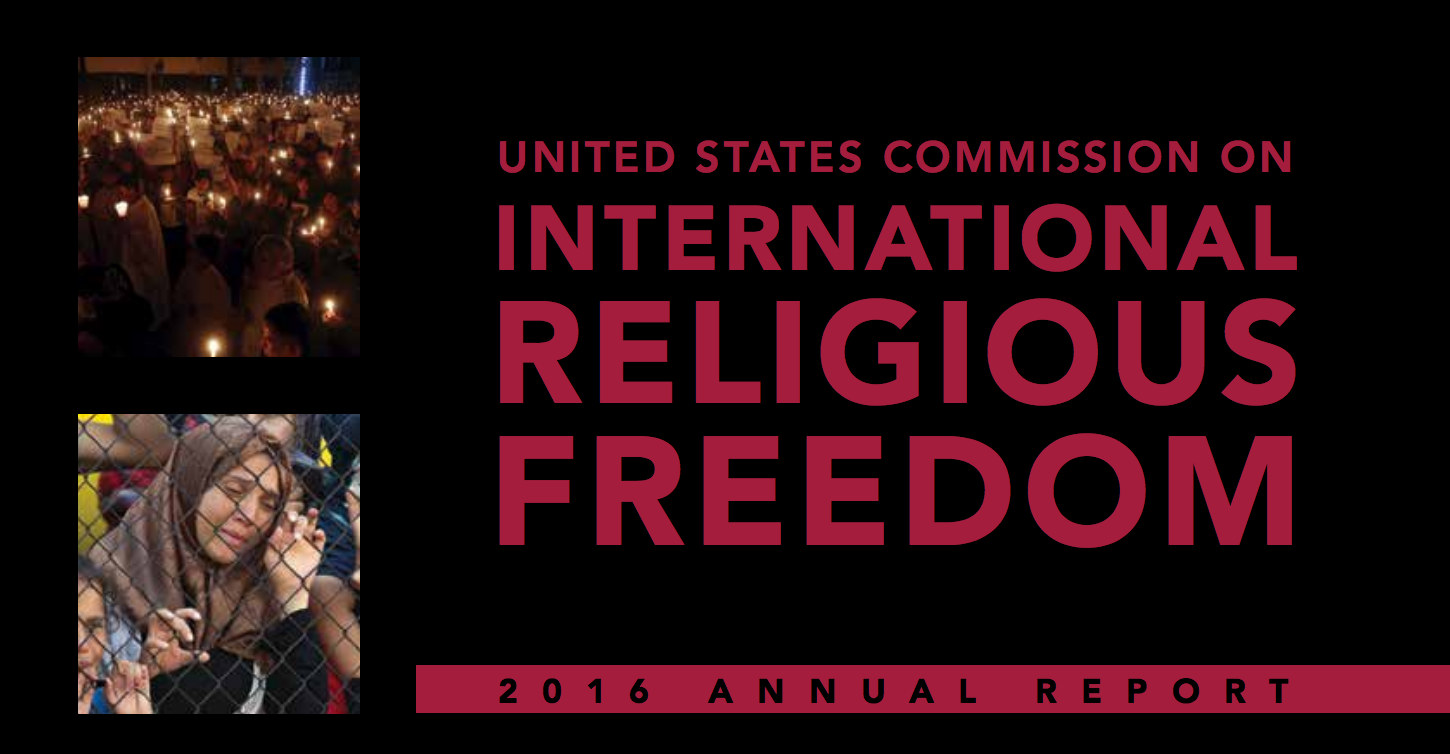On Tuesday, the United States Commission on International Religious Freedom (USCIRF) released its annual report detailing the state of religious freedom in the world. Americans for Democracy & Human Rights in Bahrain (ADHRB) welcomes the extensive report describing the conditions for freedom of religion in countries of concern.
The chapter on Bahrain details the ongoing abuses by the government against a large portion of the kingdom’s population. Currently, the majority Shia population in Bahrain continues to experience increased interrogations, detentions, and arbitrary arrests by the government. In an effort to criminalize dissent, the government targets Shi’a Muslims, including clerics, “for peaceful protests and criticizing the government’s human rights and religious freedom record.”
In comparison to the region, the report did note that Bahrain remains among the most tolerant of non-Muslim religious minority communities as the government “officially recognizes at least 19 Christian denominations, a tiny Jewish community, Hindus, and Sikhs.” However, while USCIRF found that while Bahrain had made progress in some areas, it had failed to meet some its own self-imposed deadlines on the implementation of the recommendations from the Bahrain Independent Commission of Inquiry (BICI). Additionally, the Shia population continued to face cultural, economic, educational, and social discrimination in 2015.
“It’s been five years and the government of Bahrain has still failed to implement much of the BICI’s recommendations,” said ADHRB Executive Director Husain Abdulla. “The US must hold Bahrain to its human rights commitments in respecting the right to freedom of religion, association, and expression of all.”
The report highlights cases of prominent Shia clerics and activists targeted by the Government for their advocacy and human rights work. In particular, Bahraini authorities interrogated Sheikh Maytham al-Salman, a cleric and interfaith activist, over his criticism of the government’s policies. The charges brought against him were in relation to his freedom of expression. Sheikh Maytham remains under a travel ban. Another case mentioned was that of Sheikh Ali Salman, a prominent Shia cleric and leader of the opposition bloc Al-Wefaq, sentenced to four years in prison. UN experts have criticized the charges against him, citing them as a “violation of the freedoms of expression, association, and religion.”
“USCIRF’s report on religious freedom provides an honest account of the current situation for the Shia population in Bahrain,” said Abdulla. “We call on the US government to follow this assessment and pressure the government of Bahrain to commit to real progress.”
Following the recommendations by the BICI, the Bahraini government promised it would rebuild “30 mosques and religious structures it destroyed during the unrest.” USCIRF’s report, along with ADHRB’s assessment of the implementation of BICI’s recommendation, finds that Bahrain did not implement the recommendations in regards to rebuilding destroyed structures. Bahrain “failed to meets its own self-imposed end-of-2014 deadline,” the report notes, as only 15 of the 30 destroyed structures are fully in use: the Shia community itself rebuilt seven of the 15 structures.
ADHRB calls on the United States’ government to continue pressuring the Government of Bahrain to implement all of the recommendations from the BICI and to uphold its international commitments in guaranteeing the right to freedom of religion, expression, and association for all individuals in Bahrain.
Please find USCIRF’s 2016 report here.





